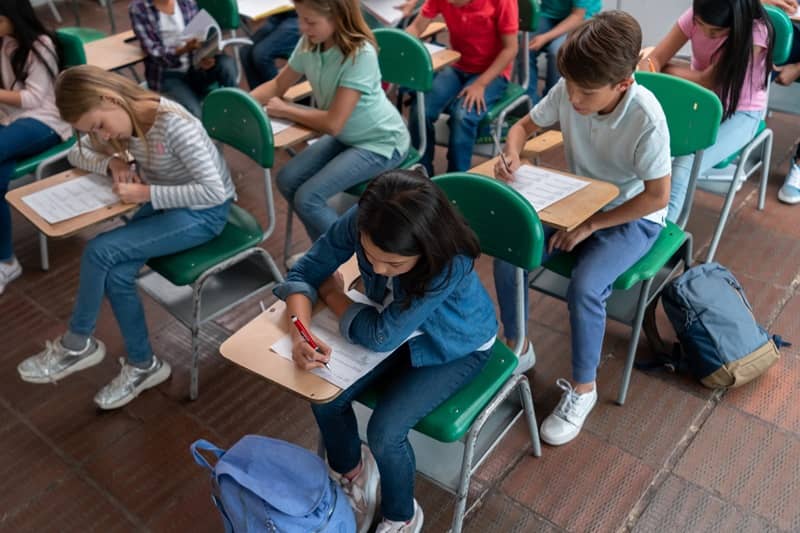By Liv Finne
Mr. Bob Dean is a public school teacher and a supporter of Initiative 1240, the ballot measure voters passed this November to allow public charter schools in Washington state. He is the head of his school’s Math Department, teaches Advanced Placement calculus, and is a past member of the State Board of Education Math Advisory Panel. Mr. Dean describes what teachers must endure in traditional schools today:
“The public doesn’t understand that today teachers are being told what to teach, how to teach, when to teach and now even how they will grade, and who they will pass or fail. They are forced to use unproven methods that fly in the face of their professional judgment and then blamed for the shoddy results.”
Charter schools offer teachers an escape from the unfair burdens imposed on them by traditional school administrators. How do charter schools liberate teachers? Here are six ways.
First, teachers in charter schools have the freedom to design their own educational program and to choose the best curriculum for their students. Teachers in traditional schools have to follow orders from so-called “curriculum experts” sitting at desks in the central district, who often require teachers to use unproven teaching methods and curricula. For example, “curriculum experts” require Seattle teachers to use a “Reform Math” curriculum that does not work well in teaching children math.
Second, teachers in charter schools can offer real input into how the school’s money is spent. Under Initiative 1240, charter school principals and teachers will be able to buy the materials, books, and technology they need to help their students. Central district administrators, by contrast, make virtually all spending decisions for local schools and consume precious resources in the process, delivering to schools less than 80% of the funding they should receive.
Third, principals and teachers in charter schools can establish a daily schedule that best meets everyone’s needs. One charter school in Arizona, Carpe Diem Charter School, uses technology to provide instruction during a longer school day, then allows students to take Fridays off, and still achieves better learning results for students. Teachers in traditional schools have no control over the daily school schedule.
Fourth, teachers in charter schools are evaluated on their performance on an individualized, humane basis by a high-quality principal who knows them well. Teachers in traditional schools in Washington state will soon be evaluated on a complex checklist of factors, reduced to a matrix of numbers, which cannot possibly capture a teacher’s unique and quintessentially singular ability to motivate and inspire students to learn.
Fifth, teachers in charter schools benefit from the principal’s ability to place an effective teacher in every classroom. Teachers in traditional schools often receive students in their classrooms who are behind because teachers in earlier grades failed to prepare students properly. Just one weak teacher in a school has a detrimental ripple effect on the many good teachers who receive that teacher’s students in later grades.
Sixth, teachers in charter schools are generally happier as professionals because they are allowed to decide what to teach, how to teach, and how to evaluate their own students’ progress. Teachers in traditional schools have seen their authority eroded, as legislatures and district administrators force them to follow the latest education fads. Excellence in education cannot be standardized or mass-produced. Excellence can only be achieved when the principal and teachers work as a team and have the tools they need to deliver quality instruction.
Charter schools are an effective antidote to the growing standardization of traditional schools. Charter schools allow teachers the freedom to use their ingenuity, creativity, and energy to individualize the education they offer students.
This freedom in the classroom is why charter school teachers in other states have been so successful at educating children, especially the most at-risk and disadvantaged kids. This freedom-to-teach is why teachers in Washington state will love charter schools, now that voters have approved Initiative 1240.
Liv Finne is the education director at Washington Policy Center, a non-partisan independent policy research organization in Washington state. She holds a law degree from Boston University School of Law and a Bachelor of Arts degree from Wellesley College. Liv is a guest contributor for Cascade Policy Institute, Oregon’s free market public policy research center.











